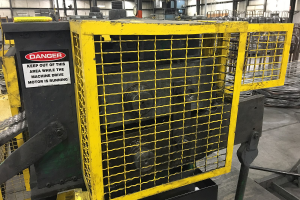OSHA proposal for LOTO rule could impact automated controls
OSHA’s proposal to eliminate one word, “unexpected,” from its lock-out/tag-out standard could have significant impact on the use of automated controls to protect workers from exposure to power hazards.
The standard currently requires the lock-out/tag-out of machines “in which the unexpected energization or startup of the machines or equipment, or the release of stored energy could cause injury to employees.”
In a proposed change to the LOTO standard issued this week, OSHA said it would delete the word “unexpected” from the standard in order to clear up confusion about whether a warning system is sufficient to protect workers. Some court and regulatory decisions have held that a warning system can be sufficient to prevent energization from being unexpected, meaning that manual lock-out/tag-out is not required.
OSHA said that warning systems are not always as effective as manually locking out/tagging out a machine, and that the court and regulatory decisions place an undue burden on compliance officers to evaluate a wide variety of warning systems to determine if they effectively protect workers.
In an article in the National Law Review, the law firm of Keller and Heckman argues that the revised LOTO standard would make it harder for automated controls, which can include warning systems, to be deemed effective in preventing worker exposure to hazardous energy. “This is a significant step backward for the cost-effective control of hazardous energy,” the article said.


